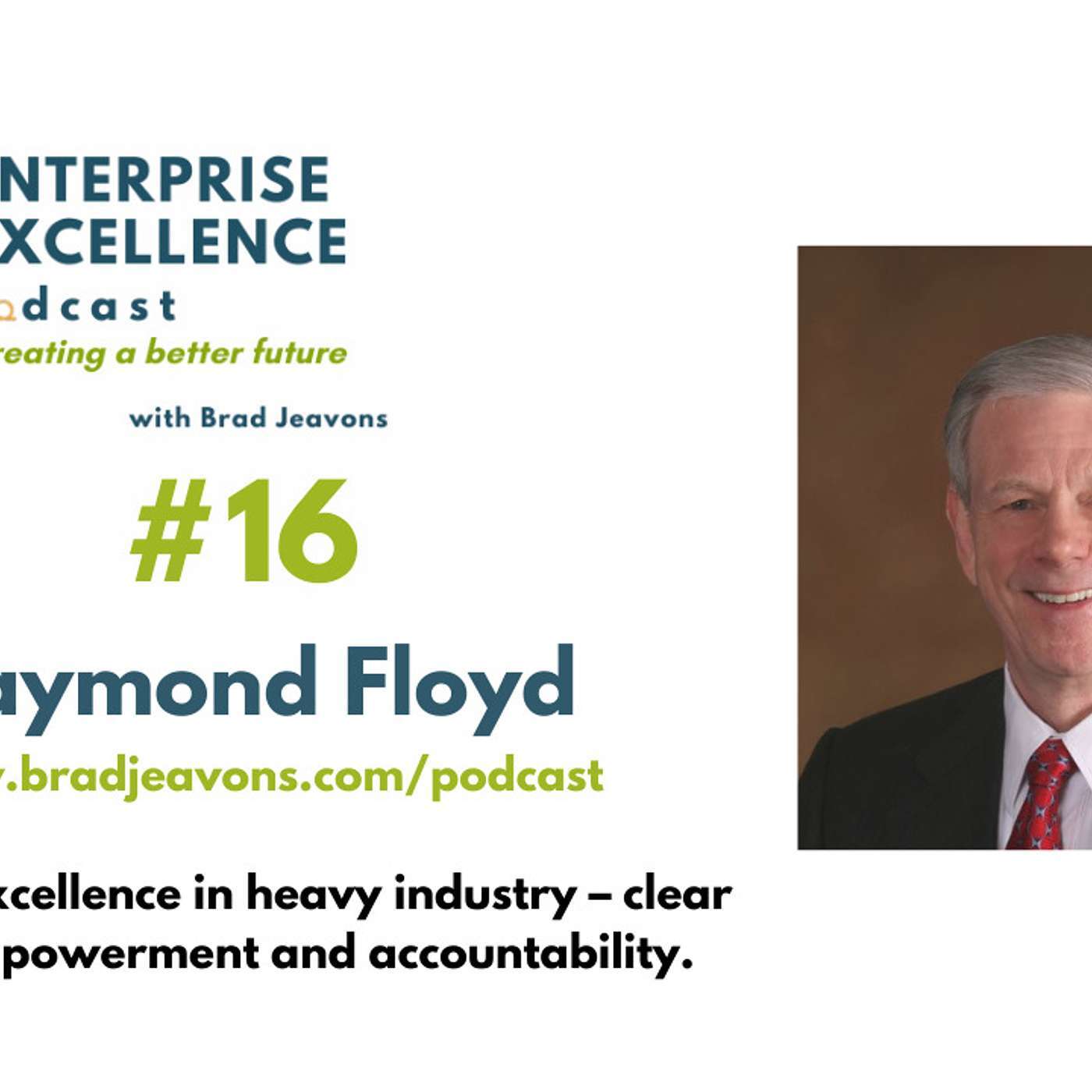
#16 Creating excellence in heavy industry – clear goals, empowerment and accountability with Raymond Floyd.
Enterprise Excellence Podcast with Brad Jeavons
• 47 min
Play episode
<p>Raymond Floyd has had a career leading the operations for some of our largest petrochemical and mining organisations. His teams were some of the first to be recognised for excellence in operations, winning the Shingo Prize in 1991 with Exxon, and other prestigious awards. Raymond is the author of the Shingo Prize-winning book "Liquid Lean: Developing Lean Culture in the Process Industries" and "A Culture of Rapid Improvement: Creating and Sustaining an Engaged Workforce". </p>
<p>Raymond encouraged lean quality stations, and these were dependent on the team. They were goal focussed, and the team knew what their part of the plan was. He would ask of his team members, 'What are you going to advance the goals? What have you done to advance the goals? What are you planning to do to advance the goals?' As team members reported on what they have done, others would see this and agree that they too could lean their activities. A ripple effect occurred as other teams reproduced these lean activities in ways that were encouraged.</p>
<p>It has been an absolute pleasure to talk with Raymond and gain his wisdom. Thanks, Raymond, for helping me to develop my knowledge as well.</p>Links
<p>Raymond Floyd LinkedIn: https://www.linkedin.com/in/raymond-floyd-582a5712/</p>
<p>Email: <a href="mailto:thefloydteam@gmail.com" rel="nofollow"><b>thefloydteam@gmail.com</b></a></p>
<p>Liquid Lean book: https://www.amazon.com/Liquid-Lean-Developing-Culture-Industries/dp/1420088629</p>
<p>A Culture of Rapid Improvement book link: https://www.amazon.com/Culture-Rapid-Improvement-Sustaining-Workforce/dp/1563273780</p>Quotes
<p><br></p>
<p> <b><em>03.07min</em></b><em> I have to admit I never actually thought of myself as being in lean practice. At the time we won the Shingo Prize, I was the global head of Exxon's synthetic rubber business and what we were doing was running the synthetic rubber business in the best way we knew how. </em></p>
<p><b><em>06.45min</em></b><em> but if they have a quality station or something of that sort that shows the visible manifestation: this is the company goals you have given us; this is how we've translated it to our work area; this is what we are doing, this is what we have done, this is what we plan to do. Makes it really easy to have a conversation that you're really just meeting for the first time.</em></p>
<p><b><em>16.34min</em></b><em> but if you get everybody involved, the engineers and managers are doing what they should be doing, and everybody else is doing what they can be doing, and you begin to get a true synergy.</em></p>
<p><b><em>28.42min</em></b><em> you could see people change; you could see that what you were doing was changing people’s lives, not just changing the performance of the organisation—changing the lives of the people within that organisation. And that's a really satisfying experience. </em></p>
<p><b><em>36.55min</em></b><em> It's all a process of giving people the things that they need to have in order for them to do what you'd like them to do.</em></p>Key Takeaways
<p> 1. Respecting and engaging all people in an organisation.</p>
<p>2. Helping everyone within the organisation understand their company's goals, purpose and mission. </p>
<p>3. Helping everyone within the organisation develop their own aligned goals and purpose.</p>
<p> These steps would allow everyone to understand strategic direction and align to themselves to this. It would engage everyone with a bigger purpose and clear reason why they are striving to improve strategically. This approach helps the whole organisation embrace change rather than resisting it. </p>
<p>To learn more about what we do, visit <a href="https://www.enterpriseexcellenceacademy.com/" rel="nofollow">www.enterpriseexcellenceacademy.com</a>.<br>Thanks for your time, and thanks for helping to create a better future.</p>
